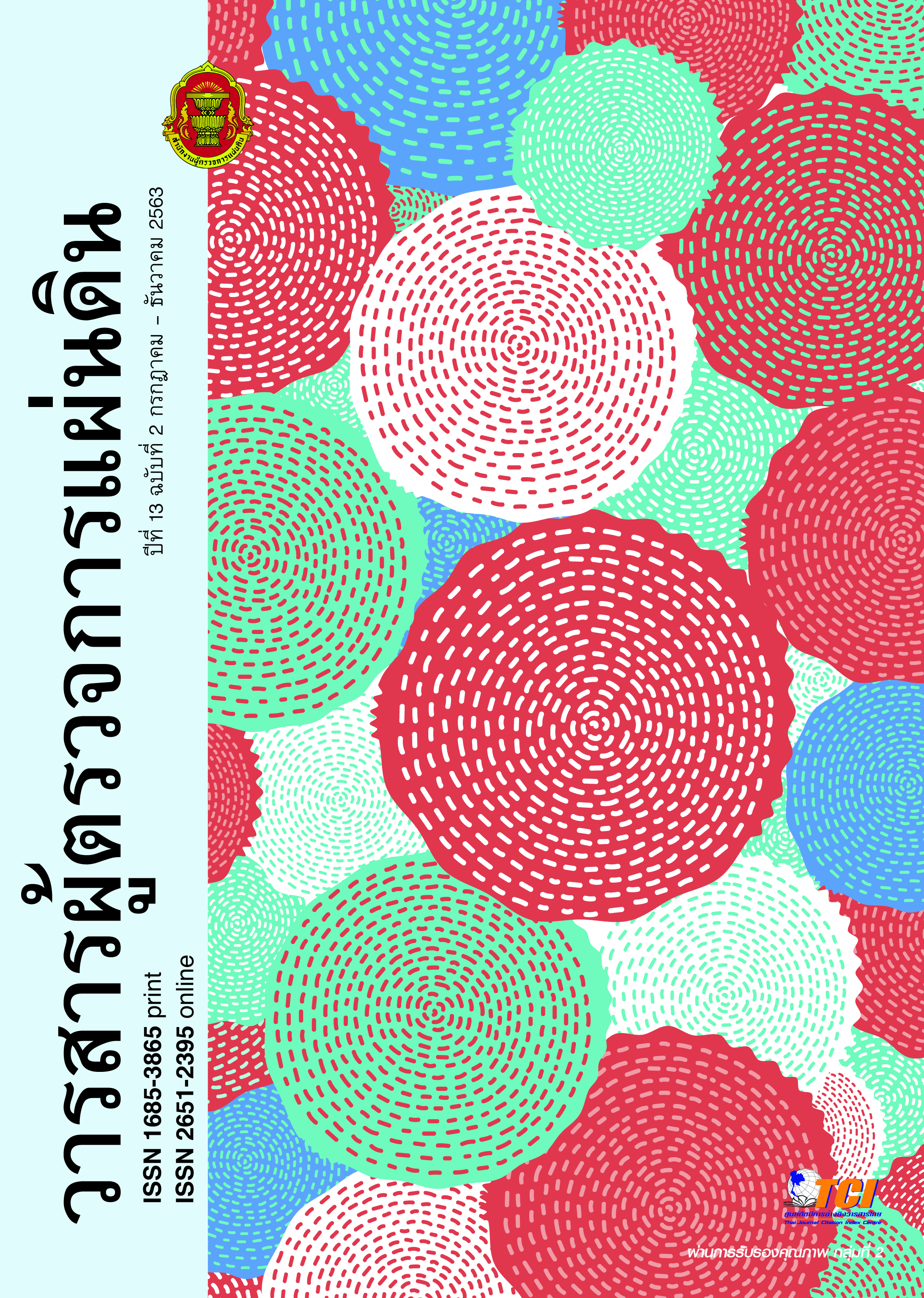Guidelines for Community Enterprise Management: A Case Study of Agricultural Demonstration Center of Community Shop at Tha Sao Subdistrict, Sai Yok District, Kanchanaburi Province
Keywords:
Management, Community Enterprise, Agricultural Demonstration Center of Community Shop, Kanchanaburi ProvinceAbstract
Abstract
This study aimed to 1) investigate the community enterprise management of the Agricultural Demonstration Center of Community Shop at Tha Sao Subdistrict, Sai Yok District, Kanchanaburi Province; 2) identify problems and obstacles in managing the community enterprise; and 3) offer guidelines for stable and sustainable community enterprise management.
A qualitative case study design was employed, and data were collected from documents and evidence, non-participant observations, and in-depth interviews. Twenty-eight key informants included 1) community enterprise committees, 2) store management committees, 3) non-primary members of the community enterprise, 4) representatives of community groups with membership at the community enterprise, 5) representatives of schools with membership at the community enterprise, and 6) relevant government officials. Inductive analysis was applied to the data.
Findings revealed these insights. 1) Management: (1) on finance, the group was found to have its internal funding, did not depend on external financial sources, and its members were either debt-free or had their debts decreased; (2) on production, the group was able to reduce production costs through organic-production emphases; (3) on marketing, the group planned their marketing strategies and surveyed customer needs by considering the dynamic values of consumption, cultures, traditions, and seasonal festivals; (4) on group management, the current group leader is efficient, selfless, and devoted, as well as demonstrated adequate abilities to solve immediate problems; (5) on labor, the group members were found to possess suitable expertise, skills, and attitudes, as well as share a mutual sense of ownership; and (6) on coordination and cooperation, the group had ongoing coordination with public and non-public parties, and took part in establishing community enterprise networks to expand production capacities and business opportunities. 2) Problems and obstacles: (1) on production, no technological solutions were found implemented to facilitate the production processes, most products displayed for merchandise were less attractive as they did not go through any product processing or development, and the packages looked outdated and lacked identities; (2) on marketing, the sales venue was not well decorated, making it incredibly less beautiful, outstanding, unique; (3) on group management, the knowledge management was not systematic; (4) on labor, problems and conflicts were identified between general members and the ones who brought their products for sales; and (5) on coordination and cooperation, out of 11 villages with membership at the community shop, only the members of the three villages were actively involved with group's activities. 3) The guidelines for stable and sustainable community enterprise management included product development and standardization, packaging development, logo development and unification, development of software solutions to synchronize production and sales for the entire system, expansions through new roles as a center for district and provincial distributions, online product marketing, renovations of the sales venue to communicate identities, systematic knowledge management, cultivation and adjustments on service personalities and behaviors, enhancement of teamwork skills, revisions on member participation to involve all members from the 11 villages of Tha Sao District, encouragement for every subdistrict to register a community enterprise and form a network for all.
Downloads
Published
How to Cite
Issue
Section
License
- Content published in the journal is personal opinions of authors which the office of Ombudsman and the editorial team are not bound to be accordance with.
- Articles, content, images, etc. published in the Journal of Ombudsman are copyright of the Journal. If any person or entity wants to bring all or part of it to publish or to do any action. Must obtain written permission from the journal's first.



